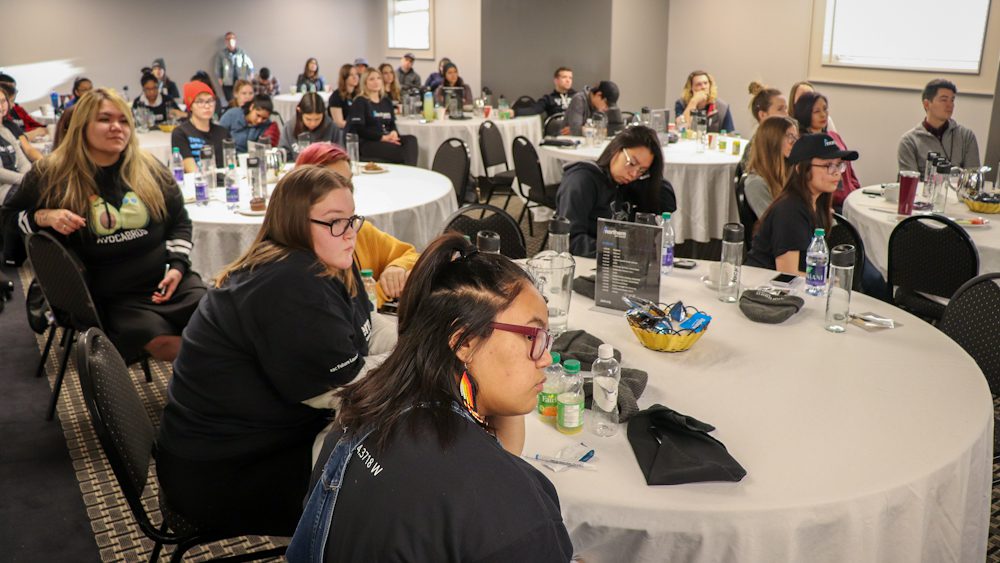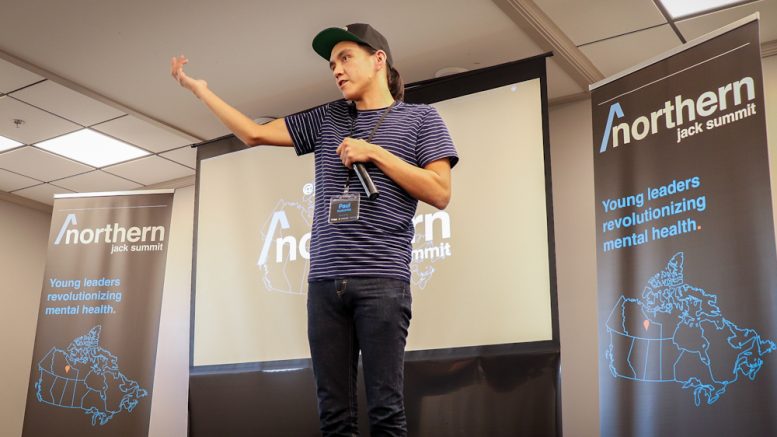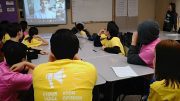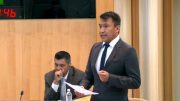Paul Nutarariaq says picking a single message when it comes to youth mental health in the North is tough.
Nutarariaq is an actor best known for his role in The Grizzlies, a film with a strong theme of mental health.
This past weekend, he gave a keynote speech at the Northern Jack Summit in Yellowknife.
One thing that is for sure, says Nutarariaq, is the need for more resources in the North to address ongoing mental health issues.
“When people talk about issues, it’s better to grab them from the roots rather than try and tend to it later, but that seems to be what happens a lot more in the Arctic. A suicide crisis happens, they throw in a couple emergency counsellors for a week and then they go right back, and nothing really comes of that,” he told CKLB
Meeting is space to speak openly
The summit is a northern take on Jack.Org’s gatherings in the South and this year was the second edition in Yellowknife.
The charity was founded by Eric Windeler and his wife Sandra Hanington in 2010 after the couple lost their son Jack to suicide.
Shania Young is one of the organizers behind the northern summit. In an earlier interview with CKLB, she said the goal was to give youth strategies they can take back to their communities to address mental health.
For example, participants were given advice on how to support a struggling friend: don’t make it about you, be attentive when listening, but also realize you’re not an expert.
Mikey Wedzin is from Behchoko and was one of the participants this year.
He said coming to events like the summit made it easier to talk about mental health. He added that he was impressed by Nutarariaq’s ability to talk openly about his mental health struggles.

About 55 youth from all three territories gathered for Jack.Org’s Northern Summit in Yellowknife on November 2. (Francis Tessier-Burns/CKLB).
Language and mental health
“We went from igloos to iPhones in one generation. Anyone would struggle to cope with that,” said Nutarariaq in his speech.
In a follow-up interview with CKLB, he added that loss of culture and language compounds the struggle.
“The heart of the matter is expression… You don’t have the capacity to properly express yourself in the language you were brought up in, so you have a broken Inuktitut and you have broken English so you can’t express yourself in either language.”
And that language barrier can become very personal.
Both Nutarariaq and Young encourage people to seek help if they are struggling.
Nutarariaq acknowledges that it’s up to the individual to take the lead on addressing their mental health.
“All I got to say is you really won’t regret that first step,” he said. “The only stopping is you yourself, you’re your biggest barrier, you’re your biggest demon.”
If you feel like you need to talk, the NWT has a free 24-hour helpline at 1-800-661-0844.
Francis was a reporter with CKLB from January 2019 to March 2023. In his time with CKLB, he had the immense pleasure and honour of learning about northern Indigenous cultures.









